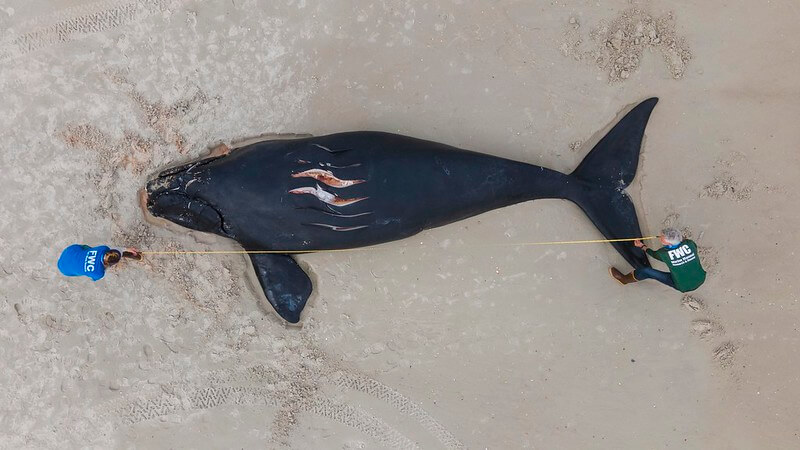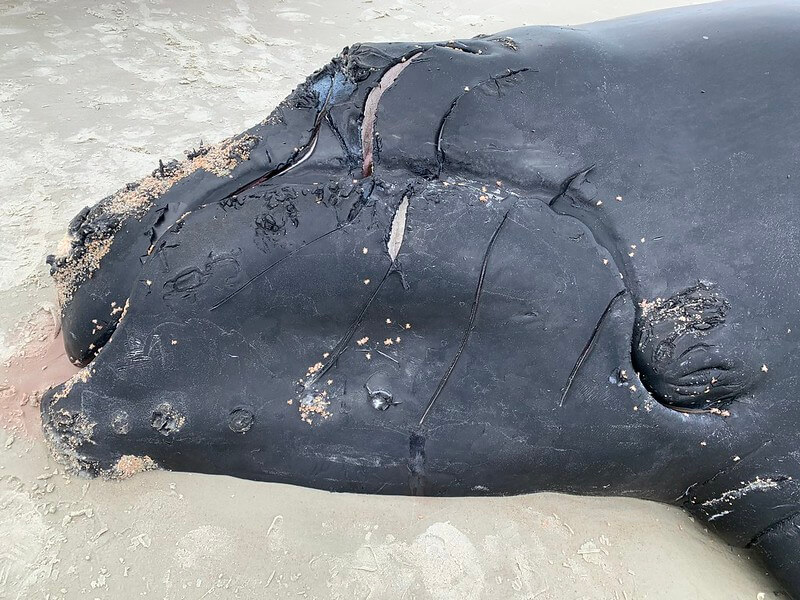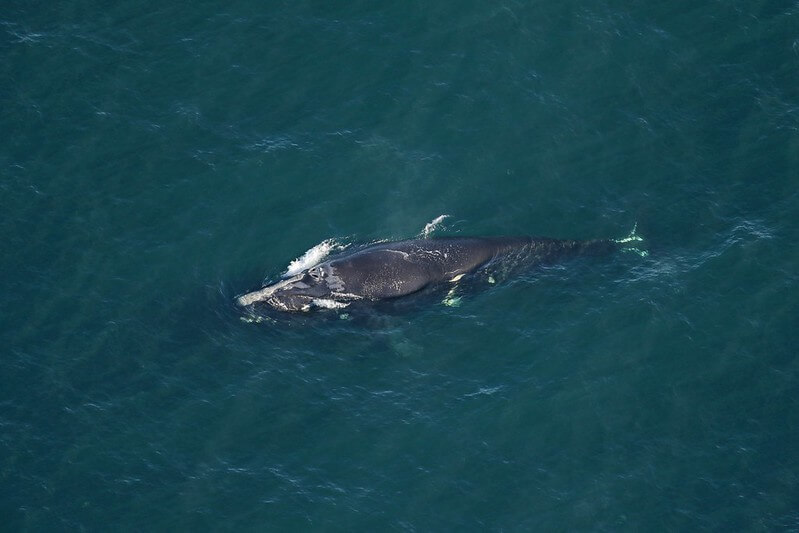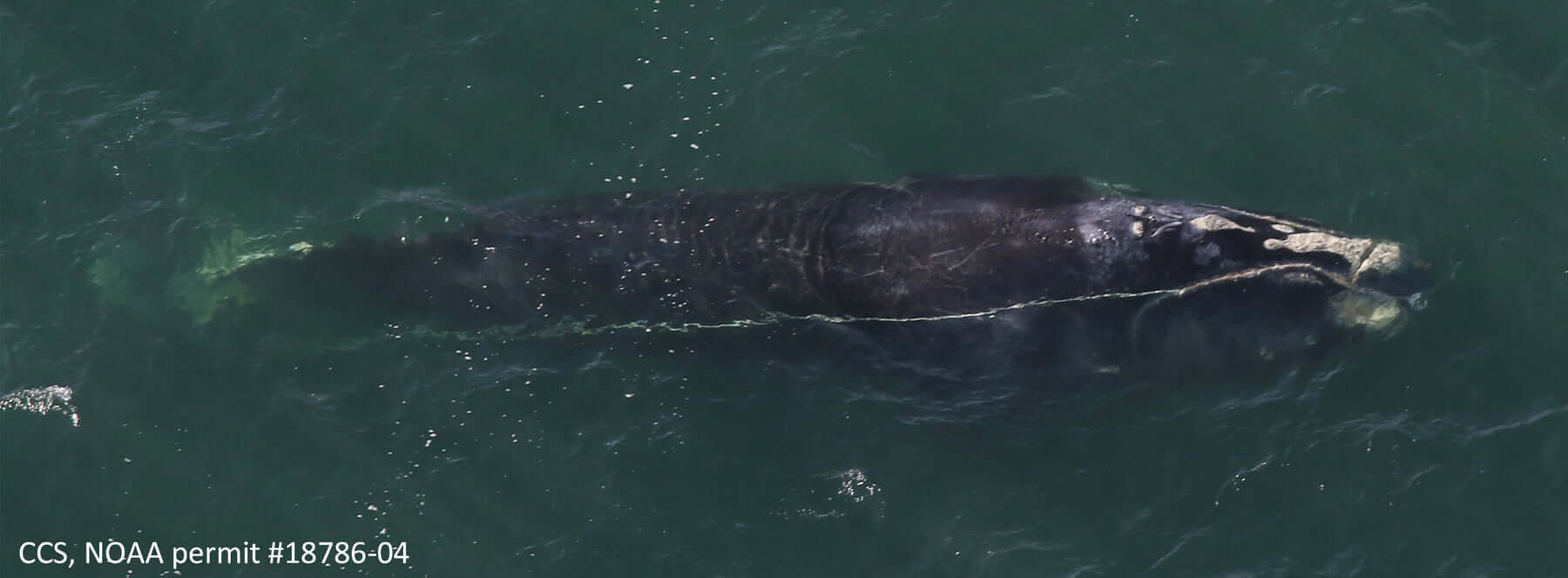In the span of just a few weeks, two North Atlantic right whale carcasses were discovered off the coast of the United States. The first one is the carcass of one of this year’s calves, born to the female Infinity, and the second one is that of an adult male nicknamed Cottontail, who had previously been spotted entangled last fall.
This is a major blow to this critically endangered species, which numbers fewer than 360 individuals. After newfound hope sparked by an encouraging flurry of newborns in recent months, these deaths are a reminder of the two main threats faced by right whales: ship strikes and entanglement in fishing gear.
Calf struck by ship
On February 12, 2021, researchers are thrilled to identify a 15th right whale calf, making 2021 the best breeding season in 6 years! The next day, it’s a rude awakening: the carcass of a male calf measuring 7 metres long is found on the beach in St. Augustine, Florida.
The individual is quickly identified: it is the young calf of Infinity (#3230). Just a few weeks old, it was first seen with its mother off the coast of Florida’s Amélia Island on January 17.
Its body bears telltale propeller scars that immediately suggest that its death was due to a collision. The necropsy reveals severe bruises (cracked skull, broken ribs) that also point to a fatal encounter with a ship. Aerial searches were able to track down the mother, Infinity, who now has two large propeller gashes on her left flank.
An investigation is currently underway. Suspicions are focused on a motorized pleasure craft in distress a few nautical miles away after what seemed to be a collision with a whale.
This calf is the second victim of a ship strike this season. A first propeller-lacerated calf carcass was found off North Carolina in November 2020.
Fatal entanglement for Cottontail
On February 28, a right whale carcass was found floating 15 miles off the coast of South Carolina. On-site teams identify him in the catalogue as #3920, a.k.a. Cottontail. This eleven-year-old male was well known to research teams for his nearly annual presence in Cape Cod Bay. He had initially been spotted entangled in rope in October 2020, and then seen again on February 18 off Florida, alive but very emaciated.
It is not known when he got himself ensnared or where the incident may have occurred. Analysis of the ropes is expected to shed some light on what happened. Cottontail had been observed swimming freely south of Nantucket in March 2020. It was in this same area that he was respotted entangled six months later, during a flight being carried out in an attempt to locate another enmeshed whale. Where had he gone in the meantime?
When the animal was first reported in October, the response team from the Center for Coastal Studies (CSS) expressed concern: “[There was] a line over its head, exiting both sides of his mouth, extending beyond his tail for about three to four body lengths.” The team managed to remove certain elements and added a satellite tag to track the whale, but inclement weather over the following days did not allow for an intervention. Despite the efforts deployed to help him, Cottontail died before the response team was able to free him of his ropes.
The discovery of Cottontail’s carcass brought the death toll to 34 recorded North Atlantic right whale mortalities since 2017, or nearly 10% of the total population of this species.
Learn more
- What’s happening with North Atlantic right whales? (in French, Whales Online, 2021)








